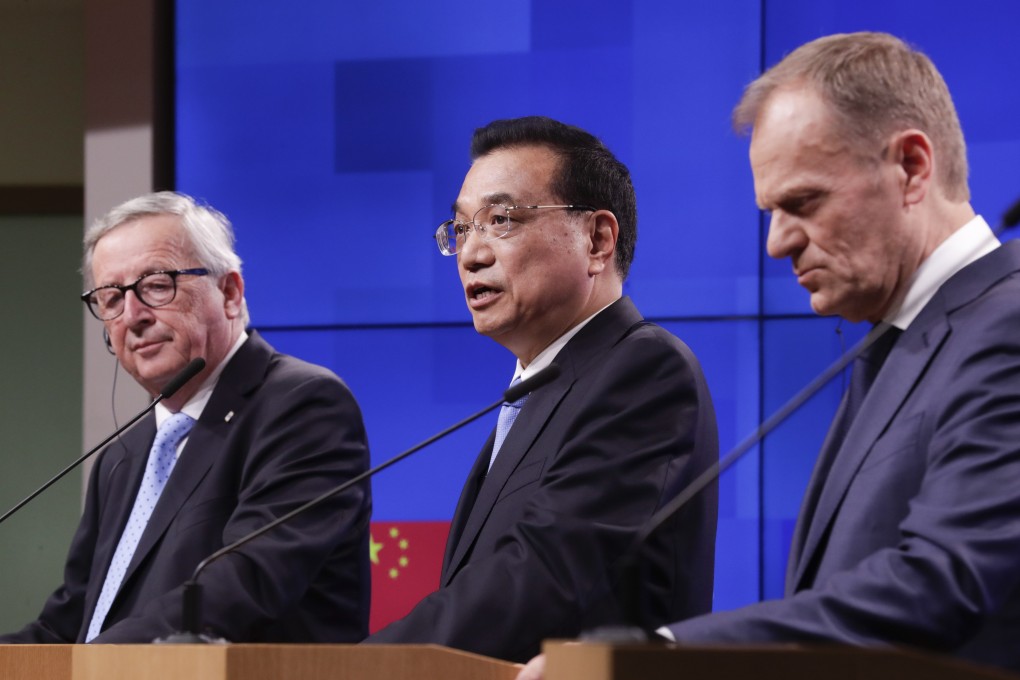Before a joint statement, a threat: EU diplomats nearly walked out of talks with China
- A rare show of EU hostility, diplomats said, reflected its impatience with China’s lack of follow-through on market reforms
- The EU representatives seemed to take a lesson from how US President Donald Trump and his team pressured China, analysts said

Two days before Chinese Premier Li Keqiang boarded the flight from Beijing for Brussels to attend Tuesday’s annual summit with European Union leaders, his team of diplomats was desperate.
They were struggling to get their EU counterparts back to the table to agree on a joint statement to be released at the end of the meeting between Li and the two EU leaders: European Commission President Jean-Claude Juncker and European Council President Donald Tusk.
The two sides were able to draft a joint statement at the last minute, but not before European negotiators initially threatened to walk out from the discussions about it without knowing what reforms and, crucially, what timetables for their implementation Li would present.
The rare show of EU hostility, diplomats said, reflected its impatience with China’s lack of solid promises or follow-through on when and how it would deliver the market reforms the EU had been waiting for years to see.
The EU representatives also showed signs of being emboldened by the behaviour of US President Donald Trump and his team in pressuring China to secure better trading terms, according to analysts.